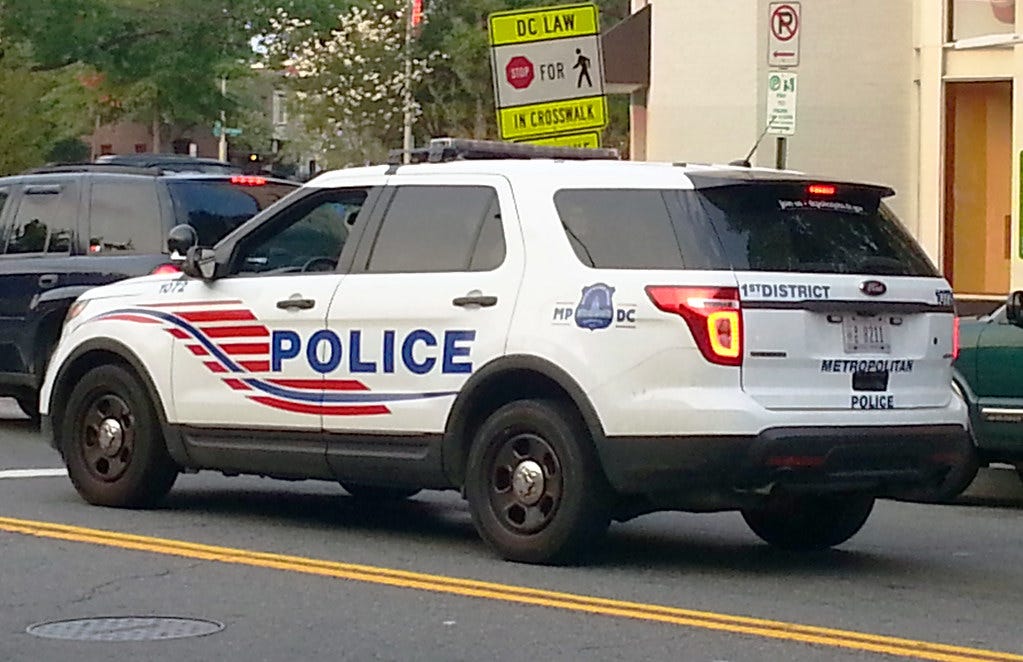A Call To Reduce The Size Of The Washington DC Police
But is better training a better solution?
Washington DC. Our nation’s capitol. And one of the most dangerous cities in the United States.
Neighborhood Scout rates DC’s crime index at 3 percent. With 100 percent being the nation’s safest city. This means Washington DC is safer than just 3 percent of the cities in the United States.
Yet today there’s another call to cut the size of the police department.
This comes just one day after five people were shot, two fatally, in a DC neighborhood.
One might argue that police patrols really can’t prevent shootings. But consider that police resources are stretched whenever there is a major crime scene such as this. And that affects response to other emergency calls.
The call to cut the number of officers on the streets is in sharp contrast with the tactic the department took in 2013. When, in response to complaints about slow police response time in DC, the department actually hired 310 cops.
Today’s recommendations call for social workers, not armed cops, to respond to certain 911 calls in Washington DC. This is not unlike similar thinking in other cities. New York City, for example, is running a pilot social worker response program.
But as any cop can tell you, oftentimes emotionally disturbed people can become violent. And with the number of guns and other weapons so readily available, it’s likely that if police aren’t dispatched after the initial 911 call they will be after social workers are confronted by armed and unstable people.
In fact, many social workers aren’t so keen about the prospect of going into dangerous situations without police backup.
The call for reforming policing has been loud, clear and well supported in this country. Especially after the tragedy in Minneapolis where George Floyd died after a police officer put his knee to Floyd’s neck for about nine and a half minutes. The number of police shootings of young black men in the United States is also obvious cause for concern. According to the National Academy of Sciences, “Police violence is a leading cause of death for young men in the United States. Over the life course, about 1 in every 1,000 black men can expect to be killed by police.” But is cutting the number of police officers the answer?
Some police departments are taking a different approach. In Toronto, for example, officers are trained to deescalate conflicts.
Gary Moskowitz is a former NYPD officer and police reform advocate. He agrees with those who say police officers are too quick to pull out their guns or become physical. The martial arts and police tactics instructor says that’s because officers are ill-trained to begin with.
“Cops have to be better trained in non-lethal restraint tactics but more importantly in what I call ‘psycho-jitsu.’” he says. Moskowitz says that’s learning how to diffuse situations by redirecting people’s anger and anxieties without resorting to physical contact.
“It’s a lot cheaper to train officers in these kind of tactics than to pay astronomical legal damages stemming from police actions,” he argues.
Moskowitz contends it’s wrong to direct blame at individual officers for their actions when they haven’t been properly trained. He holds police brass and city officials responsible for not giving officers the training they need to properly do their jobs.
He says getting physical with people should only be used as a last resort. And if it becomes necessary, officers need to know how to restrain people without hurting them.
But sending social workers to dangerous scenes? Moskowitz says that only puts people who aren’t trained to protect themselves at unnecessary risk.




Moskowitz is Right On...
I wrote a Ling critique of my 12 weeks of Detroit Police Traing (77T) it was bad..
I was then pegged as an Outsider and on my first day at Precinct 4 called a "sand nigger" I am Armenian - Ukrainian..
We were laid off 5 years ('80 - '85) and Detroit did another mass hiring - badly.
The Recertification was better with talk of Community Policing and some self defense tactics...
The problem is ...better screening before hiring, better background checks and most importantly - psychological testing...
There needs to be more frequent psychological testing because many cities are very stressful to patrol and the Departments need to be concerned.
Detroit had a bad Psych Consultant
(Scheiner) who upset officers and the problems persisted.
Bottom Line - if you hire better you get better Officers and then continually train and evaluate them..and give good support to officers under stress and in need of help.
Police functions and responsibilities need to be reevaluated, now..
City government agencies need to work with their police departments.